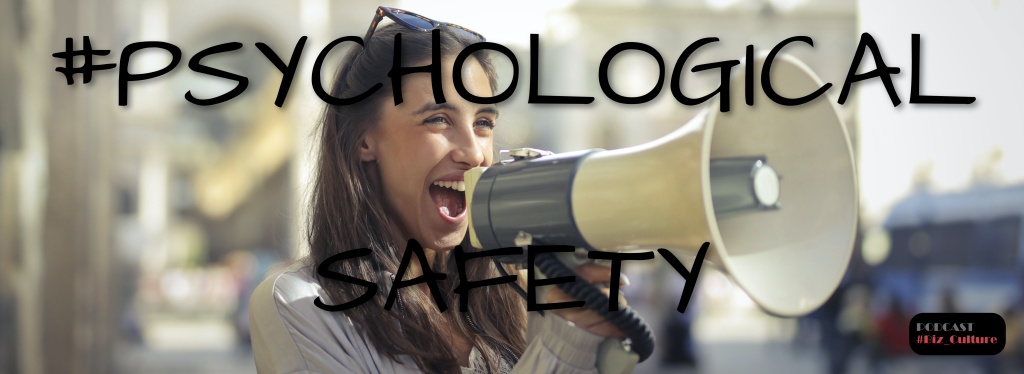With Anne Sophie Gjems
Along with changes in our social norms, comes the changes in the Human Resources department, which is being affected not only by cultural differences but also accelerated by the pandemic and remote working conditions. Not understanding your employees or colleagues today might cause catastrophic losses, of which examples are visible not only in business, politics, or other public matters but also in our personal relationships with people we love.
Still, every social context forms a particular set of rules on how each person is framed by society to express themselves. In conversations and different types of communities, people usually are segmented into introverts and extraverts as well as alpha and omega personalities. Mixing with the native cultural background and the social context in which the conversation is taken – we start to label the people. This usually gives a push for stereotype development, taboo topics and even can cause social anxiety.
If you “google it” you will find many different articles about this “new” concept called “psychological safety at work”. We got interested to know, why we need to create concepts such as “psychological safety” in order to understand that the core value in humanity is the relationships among us. In other words, how to transform our discussions into something valuable for the long run in business, public and personal life?
…but first, let’s explore our guest, Anne Sophie Gjems’ perspective and her meanings of concepts such as:

CONCEPT: “CULTURE”
Culture is a key, and the people are the culture, the gold lays within the employees. I strongly believe that you can have as many strategy documents, KPI`s and SOP`s as you wish, if you do not have the people with you, employees that thrive, yes best case, love their work (or at least the people they work with), you have lost a great deal of the potential in your business.
According to PwC recent global survey of 3,200 workers in more than 40 countries; strong cultures drive better business outcomes. Bhushan Sethi Joint Global Leader for People and Organisation at PwC says: “Organizations with a view of culture as a distinction and source of competitive advantage, maintain a sense of community better, respond to customer needs better, innovate with a higher degree of success and deliver better business results.”

CONCEPT: “PSYCHOLOGICAL SAFETY”
Google studied 180 teams and interviewed hundreds of employees to find what characterizes the best performing teams in their study Aristotle. They found that psychological safety is the key element to secure a team to perform. Psychological safety as a key concept in business is no longer something anyone can overlook. So:
- How do we create this safety in a group?
- How do we create a culture where it is legitimate to ask questions, turn things upside down, question status quo?
I dare to suggest that the most important we as humans have, is our connections. That is what in so many ways defines us as humans, at home, and at work. To feel secure, safe in an environment it all comes down to connections, the basics of being human.

CONCEPT: “RELATIONAL ARCHITECT”
As a company, we work as “relational architects”. We build and develop structures in organizations where people thrive and perform together. We help organizations build strong, robust, and crucial connections to release this collective potential. We claim that trusting connections create psychological safety in a group, and through psychological safety comes high performance.
For a connection-driven culture to take root in an organization one needs to work strategically, regularly, and over time. We use our tailored tool, FuelBox, to make this happen. Today it is used by a great number of private-public companies in Norway and internationally.

THE GUEST OF THE PODCAST:
With great pleasure, we would love to invite you to hear the conversation with our next #Biz_Culture guest, Anne Sophie Gjems from Norway. Her perspective on communication and cultural importance was trained with the biggest challenge of all times – YOUTH! Even though she had been a leader for many years, it was her job as a high school teacher that gave her the real manager challenges!
Today she is a partner in Fuel It, the FuelBox company, public speaker, and passionate about bringing great conversations into every relationship and arenas of the world.
We caught her at the Lithuanian business conference REFOCUS. Anne Sophie Gjems present a very genuine and simple way on how the discussions can be a tool to build the belonging sense in the business organization.
It will be interesting to talk with her about how to create qualitative connections with people not only for money value but also those relationships, which help us grow as human beings.
Anne Sophie has many years of experience as a leader, and as a team-/leader coach and communication skills expert, and she will share her thought with us in #Biz_Culture in our next podcast episode.
Stay tuned!
Listen #Biz_Culture at:
Follow us:
#9 PODCAST #Biz_Culture | Psychological safety at work by Anne Sophie Gjems – #Biz_Culture





